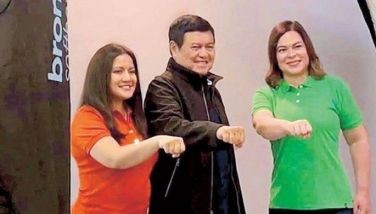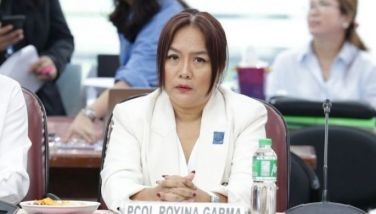PDAF: How it works
MANILA, Philippines - The Priority Development Assistance Fund (PDAF), the official name of the congressional pork barrel, is a lump sum appropriation in the national budget. For this year, it has a funding of nearly P25 billion.
It allocates P200 million a year for each senator and P70 million for each member of the House of Representatives.
The process of releasing PDAF allocations starts with a senator or congressman making a request for the release of his or her allocation. A project list accompanies the request. Projects are drawn from a menu specified in the annual budget law.
The request is sent to the Senate finance committee, in the case of a senator, or the House appropriations committee, in the case of a House member. The committee chairman endorses it to the Senate president or the Speaker, who then forwards it to the Department of Budget and Management (DBM).
The DBM makes sure that the project list conforms to the menu in the budget law. It then releases the funds to the implementing agency identified by the lawmaker, who is furnished a copy of the release document known as special allotment release order (SARO).
The lawmaker is not supposed to meddle in project implementation. But in reality, as Commission on Audit (COA) Chairperson Grace Pulido-Tan said yesterday, they chose the non-government organizations (NGOs) that received their funds and implemented their projects.
Tan said the supposed implementing agencies, when they received the PDAF funds, “just turned around and transferred the money to the NGOs identified by lawmakers.â€
The transfer is presumably covered by a memorandum of agreement signed among the lawmakers, their implementing agencies and their chosen NGOs.
Auditors usually conduct a post-project implementation examination. By this time, the funds had already been misused.
Budget Secretary Florencio Abad yesterday said senators and congressmen cannot escape responsibility for the misuse of their pork barrel funds.
He said ultimately, it is the lawmakers who allocated the funds and officials of the implementing agencies who have to account for the money and how the lawmakers’ projects were implemented, including their choice of NGOs, if these are the project implementers.
- Latest
- Trending




























